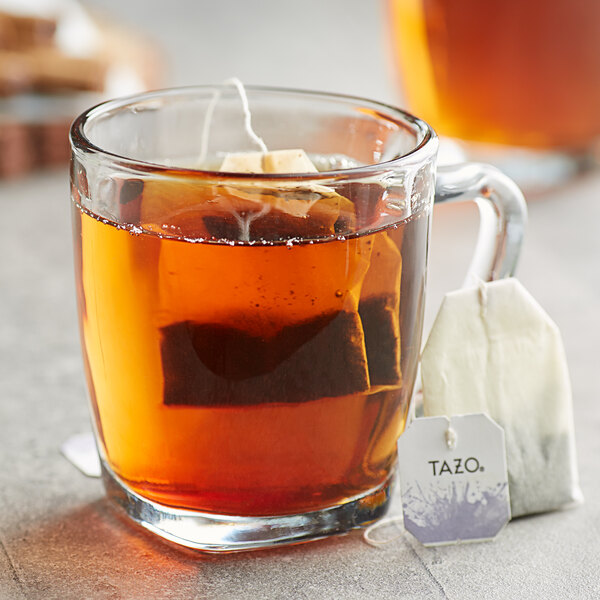Does black tea contain caffeine? Is it refreshing? Which tea has the highest caffeine content?
A common saying is that black tea contains much more caffeine than green or white tea. Many people always choose green tea because they think the caffeine content in green tea is much lower. Others say that green tea contains no caffeine. Five indisputable facts about the caffeine content in tea: 1. All teas extracted from camellias contain caffeine unless it is decaffeinated. The content of caffeine varies with a variety of factors. Young teas and buds contain the highest caffeine content of 4. 5%. Leaves picked from the same shrub on the same day have the same caffeine content (whether processed as black or white tea). Fermentation has little effect on caffeine content in black tea the strongest black tea: the tea with the highest caffeine content has at least some noteworthy effects on caffeine content in tea: tea made from buds and first-flushed leaves nitrogen-fertilized tea (common in Japanese tea trees) African tea generally has higher caffeine content than Chinese tea (African tea is made from Assam rather than Chinese tea Some of the lowest caffeine levels are found in older Chinese tea plants. Harvest in autumn. Next, let's take a look at how processing plays a role in caffeine content in tea. Longer withering time only increases caffeine content, while longer oxidation time actually reduces caffeine content. A common misconception is that highly oxidized teas, such as black tea and Pu'er tea, contain more caffeine. It is wrong to think that the caffeine content of a kind of tea is more or less stable, and it is often proved wrong. When buying tea from Tea Road, please check the caffeine content under the description of each type of tea to see the accurate measurement. Caffeine Vs Coffee in Tea many people think they should not have any caffeine. Unfortunately, this belief often comes from the experience of consuming large amounts of caffeine from coffee or other caffeinated drinks such as sodas and energy drinks. Is the caffeine in tea the same? The answer is, of course, yes. But! Tea contains theanine. Although sometimes mistaken for a stimulant, l-theanine is an amino acid. In general, amino acids calm the brain. However, l-theanine increases brain alpha activity, which in turn increases brain consciousness. Theanine and caffeine work together to improve motor function.

We also believe that it is best not to choose decaffeinated tea, because the decaffeinated process not only removes caffeine from the tea, but also takes away all the valuable nutrients and benefits of the tea. Read more. For those who are not tolerant of caffeine, drinking decaffeinated tea may be necessary, but many people find that drinking some low-caffeinated tea does not affect their health and actually motivates them positively. Give them a state of sobriety. However, if you do have severe caffeine intolerance, consider drinking some anesthetic because it still has a lot of nutrients and other herbal tea benefits. Caffeine content in green tea caffeine in green tea and caffeine in black tea first of all, to answer this question, does green tea contain caffeine?-of course! In addition, as mentioned earlier, black tea does not necessarily have a higher caffeine content than green tea, depending on processing methods and other conditions. For example, many Japanese green teas are usually high in caffeine because: soil fertilization (which also increases the nutritional value of the tea) the tea is shaded before harvest, which not only increases the required theanine, but also increases the caffeine content of green tea. This is one of the reasons why Japanese tea is deep and vibrant green.
Important Notice :
前街咖啡 FrontStreet Coffee has moved to new addredd:
FrontStreet Coffee Address: 315,Donghua East Road,GuangZhou
Tel:020 38364473
- Prev

The first offline concept store in Shanghai will open soon! Advantages and characteristics of boutique coffee concept store
In June, the boutique coffee brand completed a new round of financing of hundreds of millions of yuan with a valuation of 4.5 billion yuan. After nearly three months, the three-and-a-half offline concept store finally landed in Shanghai. The new store is called Force Flying into the force, which is similar to the three-and-a-half-meal exploration of planetary culture. The offline store is a three-and-a-half meal adventure into the new world, and it may also be a three-and-a-half-meal brand.
- Next

What is the reason that the tea is too light or bitter? What is the harm of brewing tea too many times?
Have you ever picked up your gaiwan, picked out your favorite tea, brewed it, only to find that it didn't taste as good as you remembered? Or have you forgotten that it is too bitter now? In any case, we have got some skills to improve the taste, so let's take a look at the following questions!
Related
- The ceremony is full! Starbucks starts to cut the ribbon at a complimentary coffee station?!
- A whole Michelin meal?! Lucky launches the new "Small Butter Apple Crispy Latte"
- Three tips for adjusting espresso on rainy days! Quickly find the right water temperature, powder, and grinding ratio for espresso!
- How much hot water does it take to brew hanging ear coffee? How does it taste best? Can hot water from the water dispenser be used to make ear drip coffee?
- What grade does Jamaica Blue Mountain No. 1 coffee belong to and how to drink it better? What is the highest grade of Blue Mountain coffee for coffee aristocrats?
- What are the flavor characteristics of the world-famous coffee Blue Mountain No. 1 Golden Mantelin? What are the characteristics of deep-roasted bitter coffee?
- Can I make coffee a second time in an Italian hand-brewed mocha pot? Why can't coffee be brewed several times like tea leaves?
- Hand-brewed coffee flows with a knife and a tornado. How to brew it? What is the proportion of grinding water and water temperature divided into?
- What is the difference between Indonesian Sumatra Mantinin coffee and gold Mantinin? How to distinguish between real and fake golden Mantelin coffee?
- What does bypass mean in coffee? Why can hand-brewed coffee and water make it better?

